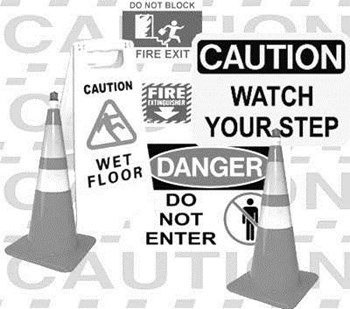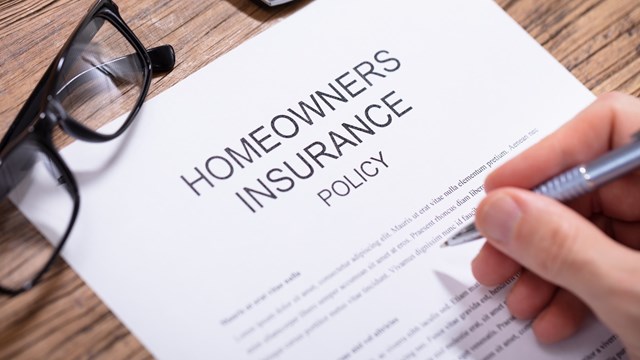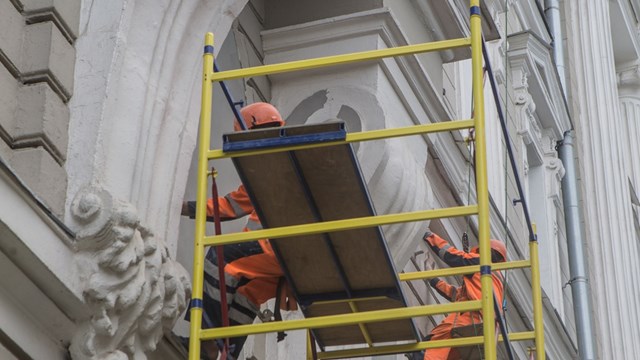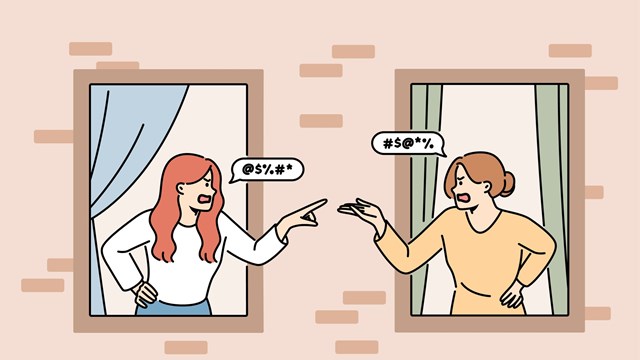
Insurance can be a hassle to deal with when it comes to your property, but failing to pay attention to the details of your policy could cost you money now and in the future. Knowing the specifics of your building's insurance policy, and also being familiar with the property that the policy covers, can save you money now and for many years to come. While the necessary insurance coverage for a building can become expensive—it doesn't have to be, and you don't have to be an insurance broker to figure it out. Board members can work to reduce insurance liabilities in their co-op or condo buildings, and thereby benefit all of the residents.
It's obvious that reducing liability will lower insurance costs—but how exactly do you do that in a co-op or a condo? Some of the solutions to the problem of rising insurance costs may be as simple as taking sound advice or seeking out the right consultants. Ignoring the problem of increasing insurance premiums is not an option, so doing the appropriate things to reduce your liability will not only save you financially, but you'll also sleep better knowing that your building is safe.
If a building's liability is getting higher, it often is because of more claims being filed against it. Any increase in claims should be viewed as a red flag by board members. When claims increase, so do insurance premiums, costing residents more money. But many steps can be taken to lower a building's liability, and several of these steps won't necessarily cost the shareholders much money. The savings gained from such steps will be reflected in steady premiums.
Watch Your Back(stairs)
Lowering a building's liability affects an insurance policy by making the property more attractive to insurers, as opposed to a building with higher liability due to a history of insurance claims or poor maintenance. A building that has lowered its potential liability will be reviewed more favorably by an insurance underwriter and ultimately will save residents money by keeping insurance premiums manageable. Sometimes, though, reducing liability in a property is about working to prevent future liability-related problems.
Ensuring that all doors are locked at all times, particularly out of the way basement doors and rear entries, lowers liability and increases the safety of the residents. Each building also should practice good maintenance—no wet floors or trip/fall hazards, says Angie Castella, vice-president of York International Agency, a Yonkers-based insurance agency specializing in co-ops and condos.
If possible, you should update your building's electric, plumbing and central air conditioning, says Robert E. Mackoul, owner of Mackoul & Associates, Inc., a real estate brokerage in Long Beach. Update junction boxes from fuses to circuit breakers. Plumbing updates will reduce risks in some older buildings by lowering the probability of pipes bursting and causing expensive property damage. Make sure that your building's air conditioning drain lines and pans also are kept clean.
Be sure that any contractor that is doing work on the property is properly insured. The contractor should have liability, worker's compensation, umbrella insurance and auto insurance, Castella says. "You also want an indemnification agreement."
Contractors who lack insurance should not even be allowed into the building, Mackoul says, noting that New York law places almost total liability on building owners. Contractors should not only provide proof of general liability insurance, but also provide proof of liability and completed operations coverage, Mackoul says. Some larger contracts may require an owner's protective policy and also bonding of the contractor.
Some fairly simple changes can be made to a property to reduce liability. Installing sprinkler systems, burglar alarms and security cameras can positively affect a building's insurance rating, explains Alex M. Seaman, senior vice-president for HUB International Northeast, based in Long Island.
"Any building upgrades make the building more appealing to an insurance company. Insurance companies love doormen," Seaman says. "Anything that will reduce your exposure to claims will have a significant impact."
Taking life safety measures for a building is always helpful in reducing insurance costs. Castella advises instituting a fire safety program, in which the building's occupants are taught how to exit the building in the event of a fire.
One integral part of reducing liability is being prepared to take the advice of experts, even if following that advice might mean costly repairs to a building. The experts know more about the insurance industry than board members do, so listen to them.
"Insurance companies do an annual inspection of the property. In my opinion, that's free advice. Those recommendations [of the insurance company] should be taken seriously," Castella says.
Consult the Professionals
To reduce liability, board members also should seek out industry professionals for advice. Consulting insurance brokers is one route. An experienced insurance broker who knows the co-op/condo market can give you advice on risk management and loss control, Seaman says.
"We have engineering and loss control services where we come into the building to assess loss control and engineering," Seaman says. "Insurance premiums can become a significant portion of the building's fees."
A board of directors also can ask their broker to have the current carrier do a loss control inspection of the property and give recommendations that can reduce the possibility of a claim. In addition, there are companies such as Alexander and Schmitt, and Seer Inspections, which do these inspections for some insurance carriers and could be hired by the board of directors to provide that service to the building, Mackoul says.
"Such an inspection would give a detailed report on the replacement cost of the building, based upon its age, construction, square footage and other conditions, as well as providing a report on loss control measures the building should adopt and life safety issues that should be instituted," Seaman says. "Taking these measures should substantially reduce the possibility of claims to property and lower the risk of claims for bodily injury and property damage."
Insurance companies use past loss history (loss reports) for the past three to five years as an indication in a rating matrix, Mackoul says. Based upon the insurance company's inspections, the company provides recommendations that range from "Critical," in which certain things must be done to the property in a particular timeframe; to "Important," in which things must be acted upon over the next year—to "We'd like you to think about," Mackoul says.
"A safe building would relate to the building security part of any inspections, which would include locked doors, window guards where there are young children and other loss control issues," Mackoul says.
Pay close attention to insurance company loss control recommendations on life safety and security issues. Things such as emergency lighting, hardwired or battery-operated smoke detectors in common areas, locked entrances and exits, and keeping sidewalks and walkways in excellent condition make a big difference, Mackoul says. Ensuring that there is a panic bar on the door allowing access to the roof, and following regulations for elevators, gyms and laundry rooms also are important.
In general, board members should do building-related business with professionals, such as insurance brokers, attorneys and accountants, who specialize in co-ops and condos, Mackoul advises. "Have each of these professionals attend a board meeting each year to provide advice and guidance," he says.
One of the most important measures a board member or shareholder can take to protect herself, though, is to make sure that she has the right insurance.
Getting Coverage
When it comes to insuring a building or condo, a few dollars of preventative insurance payments are worth thousands in claims. If catastrophe strikes your building, simply having the right type and amount of insurance can help to prevent escalating insurance costs in the future.
Board members should be sure that the building maintains an insurance coverage limit that would cover it in the event of catastrophic costs, Castella advises. Review the insurance policy, and find out what exposure your insurer is basing your policy on. Keeping claims down will keep insurance costs down, and thus, keep maintenance fees down.
Board members can make some suggestions to shareholders to reduce liabilities, as well.
"I would recommend that each shareholder maintain homeowner's insurance for their property, and also for third party coverage… Buy insurance—high umbrella limits are available at very reduced costs," says Castella.
Homeowners insurance will provide protection to restore and rebuild the unit as well as provide protection for the cost to replace personal property, Mackoul says. Homeowners may cover the extra expenses incurred by the owner and his family while their home is being restored. Homeowners insurance also provides protection against being sued by the cooperative, other shareholders, or their insurance companies for damages caused by their negligence, Mackoul says.
"Boards should adopt a mandatory homeowners program for the building," Mackoul suggests. "If every shareholder had a homeowners policy in effect that provided a minimum level of coverage, it would reduce problems in the building immensely," Mackoul says.
Jonathan Barnes is a Pittsburgh writer and a regular contributor to The Cooperator and other publications.









Comments
Leave a Comment